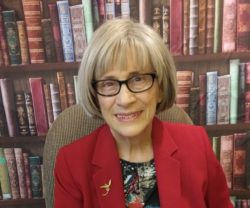

an exploration of religious diversity,' featuring a panel consisting of Muslim, Hindu, Christian and Jewish participants." That was the context against which we held a stranding-room-only session recently, 'Lifting the Curtain. "Second, I also think it more effective to tie such dialogues to corporate values and policies, and couch all this under talent acquisition and management, leadership and leadership development and innovation. I've used this approach in the area of race over the years as well with the sessions we did, "When traditional religion meets sexual orientation." Thus, skillfully facilitated dialogues where participants can share key aspects of their beliefs - and the impact of them on their productivity - safely ask tough questions, can work wonders in debunking myths and stereotypes, build trust and lessen the potential for conflicts based on religion. The better approach, in my opinion, is to make it clear that religious diversity is a corporate reality and allow employees not to have to suppress their religious beliefs - or non-beliefs - since for many it's a driver of engagement and motivation, especially during challenging economic times. Terry: "I'm not entirely convinced that organizations should initiate training per se on religious diversity, or even if "training" is the right word for the need. Trading notes with a fellow pioneer, I asked Terry for his perspective on creating understanding of religious diversity and the conversation got underway quickly.

From my cultural anthropologist perspective, the once-isolated Southeast is a major creative opportunity, similar to the Chicago area 25 years ago when I created the DuPage Interfaith Resource Network. More recently, there has been interest in my work from health care organizations, corporations and business management classes. However, the influx of international businesses, employees and their families has increased interest and I've had invitations to speak at churches, conferences and universities. Here in the South, where Christianity provides much of the raw material for social, political and economic interaction, there is little active interfaith education beyond pulpit exchanges in religious institutions. I am well aware that there are regional differences shaping the work that Terry and I do.


 0 kommentar(er)
0 kommentar(er)
